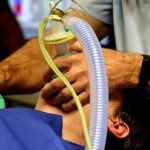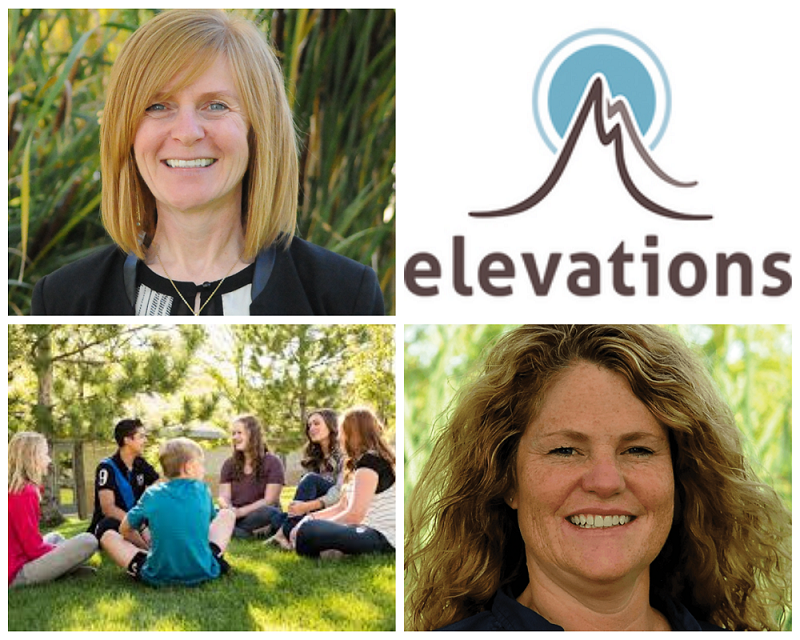When parents are in crisis with a troubled teen, Elevations RTC can offer guidance, support and relief. Elevations can help boys and girls from ages of 13-17 overcome challenges stemming from mental health problems, emotional disorders, learning disorders, substance abuse, and other underlying issues.
From depression to addiction to bullying, Elevations RTC is a leading treatment center in America, helping troubled teens regain their self-worth through proven therapeutic methods.
Today, we are lucky to have the opportunity to hear from two executives from Elevations RTC and learn a little more about how people discover the residential treatment center and the important role parents can play in helping their children get the most out of the program.
Judi Jacques, M.Ed, Executive Director of Elevations RTC has nearly two decades of behavioral health experience. Judi has been a leader of Elevations RTC since its inception. Outside of her time at Elevations, Judi loves reading, yoga, traveling and participating in outdoor adventures with her husband and dogs.
Jennifer Wilde, LCSW, Executive Clinical Director of Elevations RTC, has been working with adolescents for the past twenty-five years, primarily in the areas of depression, anxiety, abuse, trauma, substance abuse, oppositional behaviors, and family systems difficulties. She received her Master’s in Social Work from the University of Utah. Jennifer has worked in residential treatment (both short and long-term programs), which included private and correctional facilities. Jennifer likes to spend time outdoors gardening, backpacking, skiing, snowshoeing, hiking and canoeing with her husband and two sons. She also loves dogs!
How do people find out about Elevations RTC?
Jennifer– There is a wide variety of ways they find out [about Elevations RTC]. There is obviously the internet search, there is a referral from family and friends, most of our referrals do come from when people hire an educational consultant to help with the placement of their child because they need a residential placement, and it could even be as simple as a drive by the facility for a local family.
Judi– Elevations has insurance contracts with four insurance providers, Blue Cross Blue Shield, Aetna, Cigna, and United. In some cases, families find out about Elevations when they try to access their insurance benefits.
How are parents and caregivers involved during and post treatment?
Jennifer– The initial decision to place an adolescent at Elevations is made by the parents or caregiver. Based on the way Utah handles medical care, parents are able to make decisions for their students up to the age of 18, so all decisions for treatment do have to come from the parents. A lot of parents will come on site, tour the facility, meet with our admissions team and get to know our team, and we will also be getting to know them.
Each student that is placed at Elevations goes through a very thorough application process, and we only accept students into our program who are appropriate for the level of care and the type of care we are providing. Once a student has been approved, if the parents chose to move forward with enrollment in our program the parents will begin an active participation in the treatment process. The parents will be engaging in family therapy every week. We encourage families to come on site for visits, and we do home visits as well about once a month. We also encourage families to send letters and packages.
We have a parent portal system online, which is called The Family Bridge where parents send and receive letters from their student, they can see pictures of daily activities and what is going on campus, they receive the master treatment plan, as well as grades and other updates on how the student is performing within the program. Lastly, the parents have social calls with their kids every week. There are two phone call times in the initial stages of treatment, and then as treatment progresses with the students’ level, students can have up to multiple calls a day with family members and other people in their lives.
Judi– We also have the parents come on campus for a host of family seminars. We encourage parents to come on campus within the first 6 weeks of the placement for what we call a New Parent Orientation. Because most of our students come from out of state, this is, in many cases, sometimes the first chance that parents have to interact face-to-face directly with the staff members that are working with their child. They have a chance to come on campus, there are a wide array of interactive educational sessions in which they get to learn more about us and the program, and again, the individuals that are working with their child.
After the New Parent Orientation, families will come on campus about every other month to participate in family seminars. These are opportunities for families to participate in therapeutic activities, experiential activities, a chance to challenge dysfunctional family systems, to have therapeutic support as they navigate the family dynamics, reestablish the relationships, and the way the individuals interact with each other.
The residential placement is great in that it allows the family system at home to have a break from the crisis and chaos that has previously existed. Of course, as you are working towards the eventual goal to have the student reintegrate with the family you need ways to be able to get the family together and challenge some of those old behaviors, and the family seminars really help with that.
To learn more about Elevations RTC, please call (855) 290-9681.











Add Comment